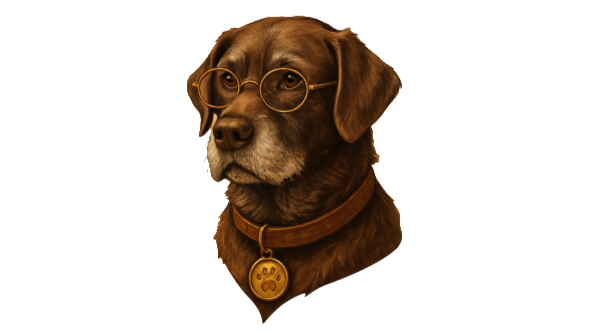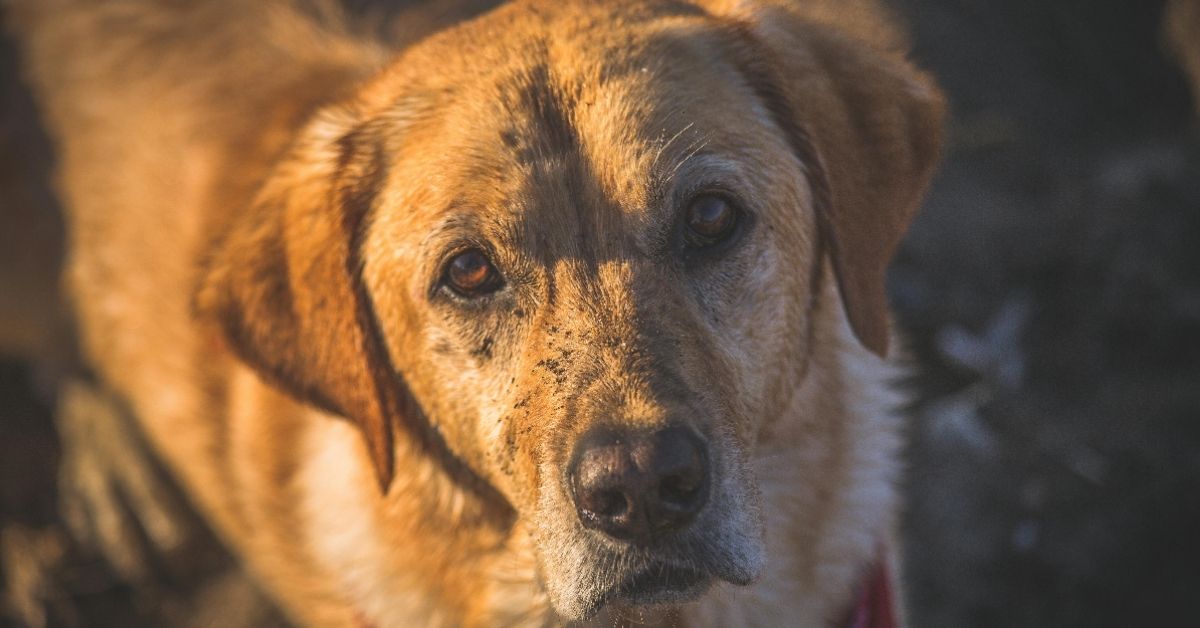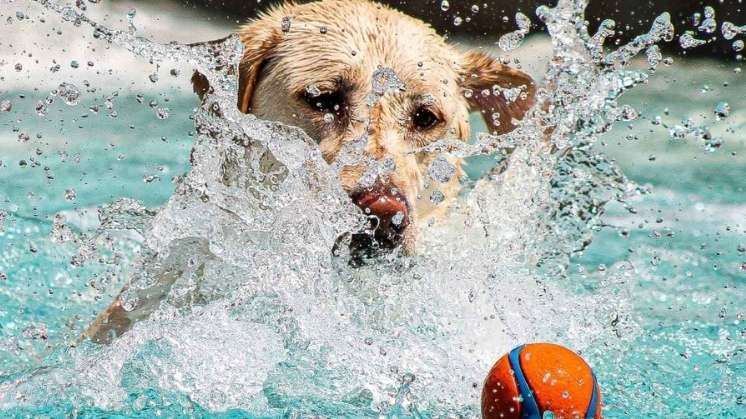
Quality Time with Your Senior Labrador Retriever
As Labrador Retrievers age gracefully into their golden years—typically beginning around 7-8 years old—they naturally undergo physical and behavioral changes that signal their transition from energetic adults to dignified seniors. They may slow down noticeably during walks, seek out more comfortable napping spots throughout the day, and move with the deliberate care that comes with aging joints and muscles. Yet beneath these visible changes lies an unchanged truth: their need for love, attention, and meaningful connection never fades, and in many ways, actually intensifies during this precious stage of their lives.
In fact, your senior Lab needs you now more than ever before. While their bodies may be adapting to the realities of aging, their hearts and minds remain as devoted and loving as they've always been. The bond you've built over years of shared experiences becomes even more precious during their senior years, serving as a source of comfort, security, and joy that can significantly impact their overall quality of life.
Understanding the unique needs of senior Labradors and adapting your daily interactions to meet those needs isn't just about maintaining your relationship—it's about actively supporting their physical health, mental well-being, and emotional stability during a time when they're most vulnerable to decline in all these areas.
The Science Behind Senior Labrador Retriever Companionship
Cognitive Health and Mental Stimulation
Daily companionship plays a crucial role in maintaining your senior Lab's cognitive health by providing essential mental stimulation that helps preserve neural pathways and cognitive function. Just as social isolation can accelerate cognitive decline in aging humans, dogs who lack regular meaningful interaction with their human families are at higher risk for developing canine cognitive dysfunction, a condition similar to dementia in humans.
Research in veterinary neuroscience has shown that dogs who receive consistent mental stimulation through social interaction, gentle training, and varied experiences maintain better cognitive function well into their senior years. The simple act of engaging with you—whether through conversation, gentle play, or shared activities—exercises their brain in ways that help maintain memory, problem-solving abilities, and emotional regulation.
The familiar sound of your voice, the routine of shared activities, and the mental engagement required for even simple interactions all contribute to keeping your senior Lab's mind active and alert. This cognitive stimulation is particularly important because mental decline often occurs gradually, making consistent daily stimulation a powerful preventive tool.
Physical Benefits: Joint Flexibility and Mobility
Beyond cognitive health, daily companionship activities directly support your senior Lab's joint flexibility and overall physical well-being. While high-impact exercise may no longer be appropriate, gentle movement during companionship activities helps maintain muscle tone, joint mobility, and circulation.
When you take time for slow walks, gentle play sessions, or even just encouraging your dog to move between different resting spots throughout the day, you're providing low-impact exercise that keeps joints lubricated and muscles engaged. This regular, gentle movement can help prevent the stiffness and muscle atrophy that often accompany reduced activity levels in senior dogs.
The motivation to move that comes from wanting to be near you—following you to different rooms, going outside together, or participating in gentle activities—often provides more beneficial exercise than forced physical activity. Because the movement is motivated by companionship rather than obligation, senior dogs are more likely to engage willingly and sustain these beneficial activity levels.
Emotional Well-being and Stress Reduction
Perhaps most importantly, consistent daily companionship provides crucial emotional well-being support for senior Labs who may be experiencing anxiety related to aging, changes in their physical capabilities, or alterations in their sensory abilities. Many senior dogs develop separation anxiety or generalized anxiety as they age, making your presence and attention even more comforting and necessary.
The routine of daily companionship activities provides structure and predictability that helps reduce stress and anxiety in senior dogs. Knowing that they can count on your attention, affection, and presence helps create a sense of security that allows them to relax and enjoy their golden years rather than worrying about their changing capabilities or uncertain future.
Understanding the Aging Labrador Retriever's Changing Needs
Physical Changes That Affect Bonding
As Labrado Retrievers age, several physical changes occur that may affect how they interact with you and their environment. Decreased hearing or vision can make them seem less responsive to your calls or gestures, leading some owners to mistakenly believe their dog is becoming antisocial or uninterested in interaction.
Understanding these changes helps you adapt your companionship approach to meet your senior Lab where they are physically. A dog with declining hearing may rely more heavily on visual cues and physical touch, while a dog with vision changes may depend more on your voice and scent for comfort and orientation.
Joint stiffness and arthritis, common in aging Labs, may make it difficult for them to seek you out as readily as they once did. Rather than interpreting this as disinterest, recognizing it as a physical limitation allows you to bring companionship to them more frequently, meeting their needs without requiring them to endure discomfort to access your attention.
Cognitive Changes and Memory
Some senior Labs experience mild cognitive changes that can affect their memory, learning ability, and even recognition of familiar routines or people. These changes can be frightening and disorienting for dogs who have relied on routine and familiarity throughout their lives.
Consistent daily companionship becomes even more important for dogs experiencing cognitive changes because your presence provides a constant, reassuring anchor in what may feel like an increasingly confusing world. The repetition of familiar activities, the sound of your voice, and the comfort of your physical presence can help reduce confusion and anxiety associated with cognitive decline.
Emotional Sensitivity and Vulnerability
Senior dogs often become more emotionally sensitive, potentially due to changes in hormone levels, increased vulnerability due to physical limitations, or simply the accumulated wisdom that comes with age. They may be more easily startled, more sensitive to changes in routine, or more dependent on your emotional state for their own sense of security.
This increased sensitivity makes the quality of your companionship even more important. Senior Labs often become more attuned to their human's emotions and may become anxious if they sense stress or upset in their family members. Providing calm, patient, loving companionship helps create the emotional stability they need to feel secure and content.
Practical Ways to Provide Meaningful Daily Companionship
🐶 "They may not chase the ball like they used to—but they'll never stop chasing your love."
This beautiful sentiment captures the essence of companionship with senior Labs—while their physical capabilities may change, their emotional needs and capacity for love remain constant. The following activities are designed to meet those needs while respecting their physical limitations.
Slow, Sensory-Rich Walks
Take a slow, sniff-filled walk and let them lead the way. This simple adjustment transforms exercise from a physical challenge into a sensory adventure that provides mental stimulation, gentle physical activity, and quality time together.
Allow your senior Lab to set the pace and follow their interests during walks. The sniffing and investigating that might have seemed inconvenient when they were younger becomes an important source of mental enrichment for senior dogs. These "sniff walks" provide cognitive stimulation through scent investigation while allowing for the gentle movement that helps maintain joint health.
Consider varying your route occasionally to provide new sensory experiences, but also maintain some familiar routes that provide comfort through predictability. The combination of new experiences and familiar comfort zones helps keep walks interesting while providing security for dogs who may be experiencing some cognitive changes.
Enhanced Physical Affection and Comfort
Add 10 extra minutes of cuddle time in the morning or evening. Physical affection becomes increasingly important for senior dogs who may be experiencing some isolation due to mobility limitations or sensory changes.
These extended cuddle sessions provide multiple benefits: the physical warmth can be especially comforting for dogs with arthritis or joint stiffness, the physical contact helps maintain your bond and provides emotional comfort, and the routine creates a predictable source of pleasure and attention that your senior Lab can look forward to each day.
Consider making these cuddle sessions more intentional by incorporating gentle massage, which can help with circulation and joint comfort while providing additional bonding time. Many senior dogs particularly enjoy having their ears, head, and shoulders gently massaged, as these areas often carry tension and stress.
Vocal Communication and Comfort
Talk to them—your voice is comforting and familiar. Senior dogs often find increased comfort in their human's voice, especially if their hearing is declining or they're experiencing confusion due to cognitive changes.
Make a habit of narrating your activities when your senior Lab is nearby, greeting them when you enter a room, and having brief "conversations" throughout the day. This vocal communication helps them feel included in your daily life and provides the mental stimulation of processing familiar sounds and tones.
For dogs with hearing loss, speaking in slightly lower tones often works better than raising your voice, as lower frequencies are typically preserved longer than higher ones. Even if your dog's hearing is significantly impaired, they may still feel the vibrations of your voice and find comfort in your attempt to communicate.
Mental Stimulation Through Gentle Games
Try a short mental stimulation game like a treat puzzle or hide-and-seek. Mental enrichment becomes increasingly important for senior dogs who may have reduced physical activity but still need cognitive engagement to maintain brain health.
Adapt puzzle games to your senior Lab's current abilities—choose puzzles with larger pieces that are easier to manipulate, use high-value treats that are easier to smell and more motivating, and provide assistance if needed to prevent frustration. The goal is mental engagement and success, not challenge and difficulty.
Hide-and-seek games can be adapted for senior dogs by using easier hiding spots, providing verbal cues to help them succeed, and celebrating their victories enthusiastically. These games provide mental stimulation while reinforcing your bond and giving your dog a sense of accomplishment.
Peaceful Companionship and Observation
Sit outside together and watch the world go by. Sometimes the most meaningful companionship requires no activity at all—just shared presence and peaceful coexistence.
Create comfortable outdoor spaces where you and your senior Lab can spend time together without any agenda other than enjoying each other's company. This might involve setting up comfortable seating in your yard, visiting a dog-friendly park with benches, or simply spending time on your front porch.
These quiet moments provide sensory enrichment through outdoor sights, sounds, and smells while allowing your senior Lab to rest comfortably in your presence. The lack of pressure to perform or participate can be especially refreshing for dogs who may feel overwhelmed by more active engagement.
Creating Age-Appropriate Daily Routines
Morning Companionship Rituals
Start each day with intentional companionship time that sets a positive tone for both you and your senior Labrador Retriever. This might include a gentle greeting when you wake up, a brief outdoor potty break accompanied by quiet conversation, and perhaps some gentle petting or massage while you have your morning coffee.
Morning routines are particularly important for senior dogs because they often experience more stiffness and disorientation upon waking. Your calm, patient presence during these moments helps them transition into the day with confidence and comfort.
Midday Check-ins and Engagement
Senior dogs often benefit from brief periods of engagement throughout the day rather than long sessions that might tire them out. Plan short check-ins where you spend a few minutes with your Lab—perhaps offering a small treat, engaging in brief conversation, or providing gentle petting.
These midday interactions help break up long periods of rest and provide regular reminders that they're valued and loved. For senior dogs who may be experiencing some cognitive decline, these frequent positive interactions help maintain your bond and provide ongoing reassurance.
Evening Wind-Down Companionship
End each day with calming companionship activities that help your senior Lab settle into restful sleep. This might include gentle grooming, quiet conversation, or simply sitting together while you read or watch television.
Evening routines are particularly beneficial for senior dogs who may experience increased anxiety or restlessness at night. Your presence and attention during this transition time can help them feel secure and ready for peaceful rest.
The Long-Term Benefits of Consistent Senior Companionship
Slowing Cognitive Decline
Research suggests that senior dogs who receive consistent mental stimulation and social interaction through daily companionship may experience slower rates of cognitive decline. The mental engagement required for interacting with their humans, processing familiar routines, and participating in gentle activities helps maintain neural pathways and cognitive function.
The gentle movement encouraged through companionship activities helps maintain muscle tone, joint flexibility, and circulation in senior dogs. Perhaps more importantly, dogs who feel emotionally connected and engaged are more likely to maintain their appetite, participate in necessary healthcare, and generally take better care of themselves.
Emotional Stability and Quality of Life
Senior dogs who receive consistent, loving companionship typically show better emotional regulation, less anxiety, and greater overall contentment. The security that comes from knowing they can count on your attention and affection helps them navigate the challenges of aging with greater confidence and peace.
Recognizing and Responding to Changing Needs
Adapting to Physical Limitations
As your senior Lab's physical capabilities change, your companionship approach should evolve accordingly. A dog who once enjoyed long walks may now prefer short strolls, while a dog who used to play vigorously may now prefer gentle interaction and massage.
The key is staying attuned to your dog's current capabilities and interests rather than trying to maintain activities they may no longer enjoy or find comfortable. Flexibility and adaptation demonstrate your love and understanding more effectively than rigid adherence to past routines.
If your senior Lab begins showing signs of cognitive decline—such as confusion, changes in sleep patterns, or altered recognition of familiar people or places—your companionship becomes even more crucial. Maintaining consistent routines, providing patient reassurance, and offering gentle guidance can help them navigate these changes with greater comfort.
Celebrating Small Moments
Perhaps most importantly, learn to find joy and meaning in the quieter, gentler moments that characterize companionship with senior dogs. The enthusiastic tail wag when you enter the room, the contented sigh when they settle beside you, and the peaceful sleep that comes from feeling secure in your presence are all precious gifts that senior Labs offer to their devoted humans.
Making Everyday Count
Senior Labradors may not be the bouncing, energetic puppies they once were, but their hearts remain full of love, loyalty, and devotion. Their capacity for joy, comfort, and companionship doesn't diminish with age—it simply takes on new, more gentle forms that can be equally rewarding for both dog and human.
Spending meaningful time with your senior Lab isn't just about meeting their needs—it's about honoring the years of love, loyalty, and companionship they've given you. It's about recognizing that while their physical capabilities may change, their emotional needs and their capacity to bring joy to your life remain constant.
Make it a daily habit. They deserve it. 🐾
Every moment you spend with your senior Labrador is an investment in their comfort, happiness, and quality of life during their golden years. These simple acts of companionship—the slow walks, gentle conversations, quiet cuddles, and peaceful moments together—are not just pleasant activities but essential elements of senior dog care that support their physical health, cognitive function, and emotional well-being.
The time you spend together now creates a foundation of comfort and security that helps your senior Lab face the challenges of aging with confidence, knowing they are loved, valued, and cherished every single day. In return, you receive the irreplaceable gift of their continued devotion and the deep satisfaction that comes from providing excellent care for a beloved family member during their most vulnerable and precious years.
📸 Photo Credits: Featured images in this article are licensed from Shutterstock



